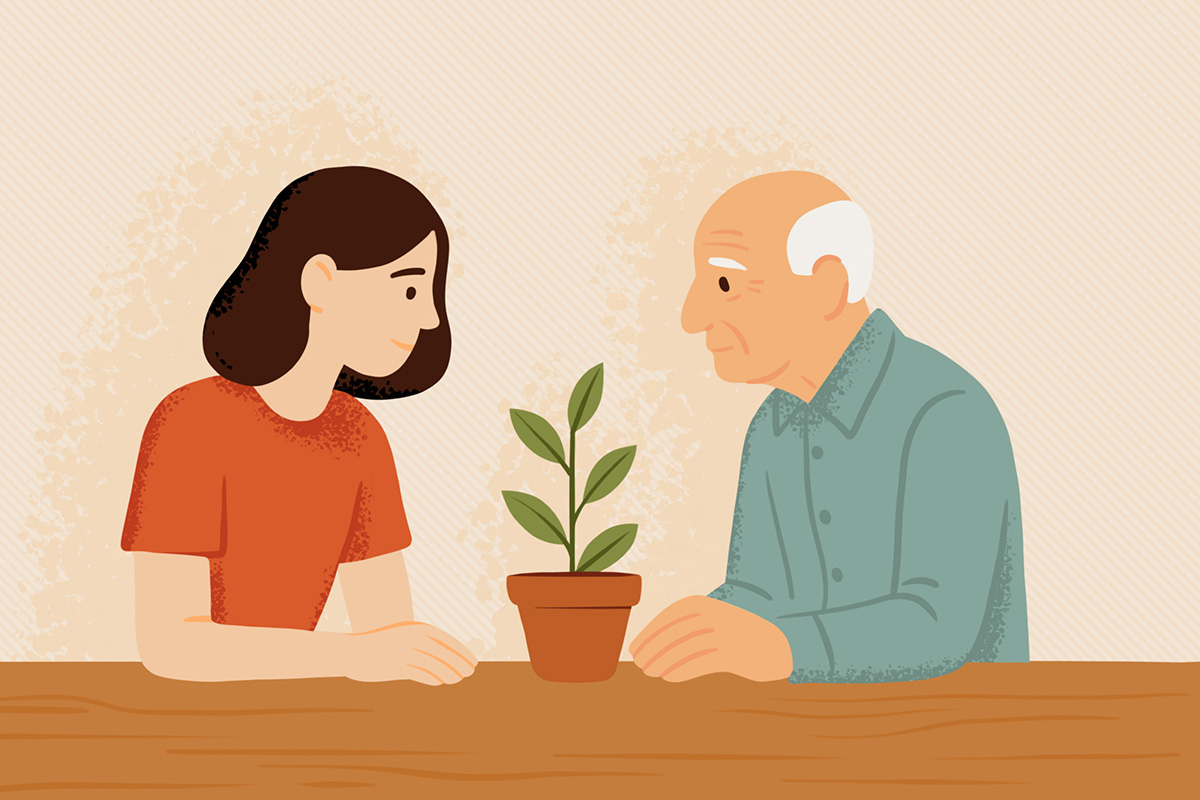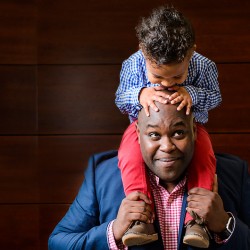New Certificate in Aging Studies
UW–Madison has an answer for the shortage of eldercare professionals.

The certificate seeks to dispel commonly held stereotypes regarding older adults and aging. Danielle Lawry
By 2034, older adults will outnumber children under the age of 18 for the first time in U.S. history.
The need for people with the expertise to work with older adults is increasing. However, there is a shortage of professionals specially trained to work with them.
“We are at a juncture in our society, because of the baby boomer generation, where we have a ton of older adults who need services. They’re going to need care,” says Jaime Goldberg PhD’82, a clinical assistant professor at the Sandra Rosenbaum School of Social Work. “Why not train our students across disciplines to provide that care?”
To address the need, the school, in conjunction with many other departments, launched an interdisciplinary undergraduate certificate in aging studies this fall.
“For students who are thinking about going into health care — medicine, pharmacy, nursing, occupational therapy, physical therapy, speech and language pathology, genetic counseling, nutritional science — this could be beneficial,” Goldberg says. She also mentions students in social work, psychology, rehab psych, law, and even engineering (think of the design of pill bottles and labels, for instance).
Goldberg will chair the certificate program with an interdisciplinary team of colleagues from departments and schools across campus. The certificate will provide students with comprehensive knowledge of the aging process from biological, psychological, and social perspectives. The broad, interdisciplinary curriculum is designed to be accessible to interested students from as many schools or departments as possible.
The certificate aims to expand the cultural understanding of caring for older adults, framing it as a rewarding privilege rather than a burden. It also seeks to dispel commonly held stereotypes regarding older adults and aging.
One class students can take to complete the certificate is Social Issues and Aging, which requires them to volunteer at least 25 hours working with older adults. Goldberg, who teaches the course, says that at least a third of last year’s class planned to continue volunteering with older adults even after the class was over.
“Many of them said, ‘You know, this helps me to understand my grandparents better and what they’re going through. This helps me to have more self-awareness and patience and empathy when I’m in a grocery store, and somebody in front of me in line is taking too long to count out their change.’ ”
Published in the Winter 2025 issue



Comments
No comments posted yet.